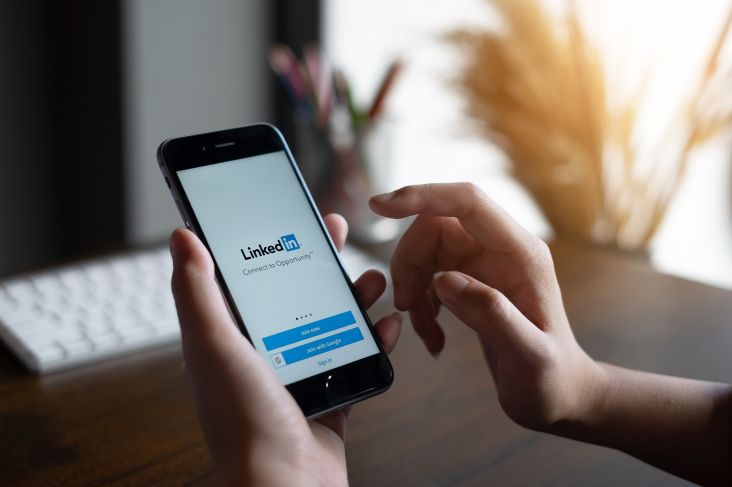How to tackle overdue invoices and ensure you get paid
You did the work, emailed your invoice to your client with the usual 30-day payment terms, and it's now three weeks overdue. Dealing with late payers is something we all have to face regularly.

Image licensed via Adobe Stock
Having a healthy cash flow is paramount to your survival and success, so you have to learn how to tackle overdue invoices. Otherwise, you put pressure on your cash flow. But chasing for money is something you'll naturally dread, particularly as you'll want to stay friends with your clients and not burn any bridges.
So how do you get those payments sorted in time without annoying your clients and keeping your relationships healthy? Here are our top tips on tackling overdue invoices.
Set expectations
With every new client, establish your payment terms as early as possible. Explain when and how you invoice, and when you expect invoices to be settled. With my own business, we normally go with the standard 30-day payment terms, and we send our invoices once work is complete, usually at the end of each month. Larger companies might have a 60-day term. Others might require immediate payment. It's up to you how you set the rules, but in my experience - 30 days tend to be the 'norm'.
Warn about interest on late payments
Did you know the UK government has legislation to protect small businesses against late payers? The law allows you to charge debtors interest on any late payments, but only if you want to. This 'late payment' legislation means you can claim interest on unpaid invoices at 8% over the base rate and reasonable debt recovery costs.
For more details read this article. Just make sure you warn new clients that you may charge interest if invoices aren't paid on time.
Set up decent accounting
Accounts can be a headache, but they don't have to be. Use something like FreeAgent to track time, invoice and send statements. You can add your company logo, add all clients as 'contacts' and everything can even be integrated with your business bank account. There's plenty of other options out there, but FreeAgent is our favourite. It will give you that professional edge and help you keep on top of things.
Know when to chase
So it's been 30 days and still no payment? Give it a couple of days before you pursue your client. You want to give them a chance as there'll potentially have their cash flow to consider. Give it three or four days before you contact your client.
Don't assume the worst
When you chase for payment for the first time, don't be angry with your client. And don't think the worst, either. People quickly forget so a friendly reminder might be the only thing that's required.
Send a friendly email
When you first chase, send a friendly email with the original invoice attached. Keep the tone of your email light. Say something like: "Hi Tom, hope all is well. Just wondered if you'd had chance to pay the attached invoice? It's now overdue and requires payment. Any probs, shout!". And that should do it!
Next, send a statement
If a friendly email reminder doesn't do the trick, submit a statement a couple of days later. Again, attach the statement to a friendly email and remind the client that payment is now due. Don't resort to being angry or aggressive – keep it warm and friendly, but ensure you apply the pressure. It should ensure you get paid.
Pick up the phone
If you've followed all of the above advice, and you've still not been paid – pick up the phone. Be friendly and ask if there is any issue with payment. This will put the client on the spot and make them answer 'yes' or 'no'. From this conversation, you should be able to determine your next move.
Last resort stuff
If the client still hasn't paid, consider charging interest on the debt – but only if you've pre-warned your client that this might happen. It would also be advisable to carry out no further work until the invoice in question has been paid. For additional help and information, read this Late Payment Users Guide.
Hire someone else to chase
Hate dealing with clients and overdue invoices? Get someone else to do it! Not only will you avoid the headache of chasing payments, but hiring a professional accountant or PA will give you a better chance of getting paid. It gives you credibility.
Finally, lessen the risk
Still not getting paid? Next time, ask for a percentage upfront or full payment before work even begins. Explain to all new clients that you're a small business and in future are happy to invoice after work has been completed, but only once your relationship is established.




 by Tüpokompanii](https://www.creativeboom.com/upload/articles/58/58684538770fb5b428dc1882f7a732f153500153_732.jpg)

 using <a href="https://www.ohnotype.co/fonts/obviously" target="_blank">Obviously</a> by Oh No Type Co., Art Director, Brand & Creative—Spotify](https://www.creativeboom.com/upload/articles/6e/6ed31eddc26fa563f213fc76d6993dab9231ffe4_732.jpg)
















